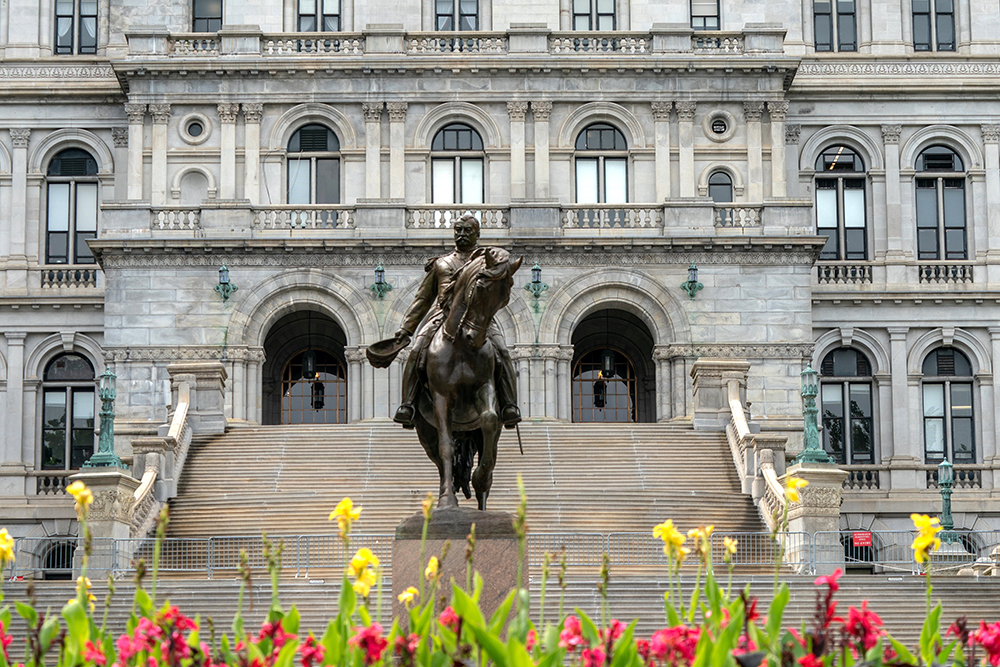
PROSPECT HEIGHTS — Come the start of the new year, New York state could have a commission created to consider reparations for African American residents.
New York legislators passed a bill in June to create the commission. Gov. Kathy Hochul has until the end of the year to sign or veto the bill. However, she has not yet formally taken the bill up for consideration and has until the end of the year to do so.
If the legislation is signed, the new commission has one year from its first meeting to submit a written report of its findings and recommendations to the president of the State Senate, the speaker of the Assembly, the minority leaders of the Senate and Assembly, and the Governor, according to the legislative text. Any recommendations made are nonbinding.
The commission’s duties, as outlined by the legislative text, are to examine multiple layers of New York State’s involvement in the institution of slavery, including the extent of which it existed, the extent of which the federal, state, and local governments were involved, how the state engaged in the interstate transfer of those enslaved, and the discrimination against freed slaves.
Based on the findings, the commission is to recommend the appropriate remedies and reparations, which may or may not include financial compensation.
According to the bill, the first enslaved Africans arrived to the southern tip of Manhattan around 1627 and were integral in the development of New York City’s infrastructure without reaping the benefits of their work. It wasn’t until 1817 that the New York Legislature passed legislation to abolish slavery 10 years later, in 1827.
After the reparations commission legislation passed, New York Assembly Speaker Carl Heastie called it “historic.”
“The institution of slavery in our state and nation laid the groundwork for the racial, economic, and institutional injustices that have plagued communities for decades,” Heastie said. “This is a historic piece of legislation that will confront the insidious history of slavery and the way its legacy continues to affect black New Yorkers today.”
The New York State Catholic Conference declined to comment on the bill.
Although the bill has passed both chambers of the state legislature, legislators have not formally delivered it to Hochul’s desk for consideration.
According to Paul Alexander, the legislative director for New York State Senator James Sanders Jr., who sponsored the bill in the Senate, it’s common practice that after a bill is passed that legislators will wait to deliver it to the governor until it’s requested.
He added that he’s not concerned that it hasn’t been requested at this point, considering hundreds of other bills haven’t either, and a decision doesn’t need to be made until the end of the year.
Alexander added, however, that if the governor doesn’t request the bill by early December, legislators will then deliver the bill — and the many others waiting for a signature or veto — regardless if it’s requested. In the unlikely scenario that it isn’t delivered, the bill will die and it would have to go through the full legislative process all over again.
New York is one of the first states to formally consider reparations through legislation. The first was California; a reparations task force said in a report issued earlier this year that the state is responsible for more than $500 billion due to past racial injustices.
New Jersey and Vermont are two other states that have considered studying reparations, but neither has passed legislation. On the federal level, there hasn’t been much movement on anything reparations related; a decades-old proposal to create a commission to study reparations has repeatedly stalled in Congress.
